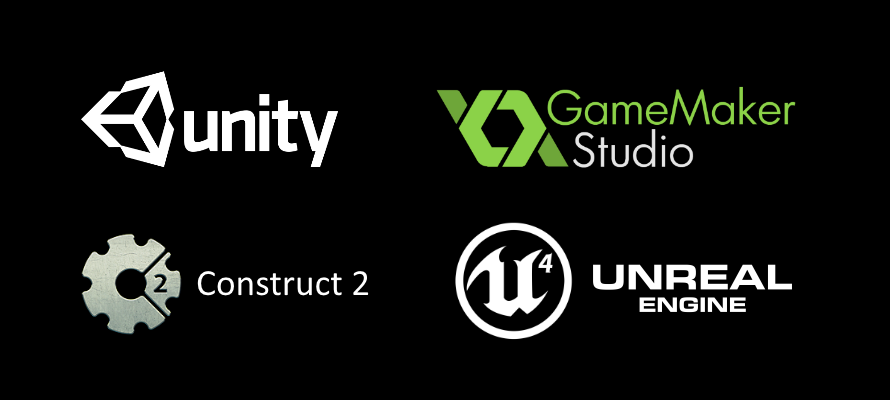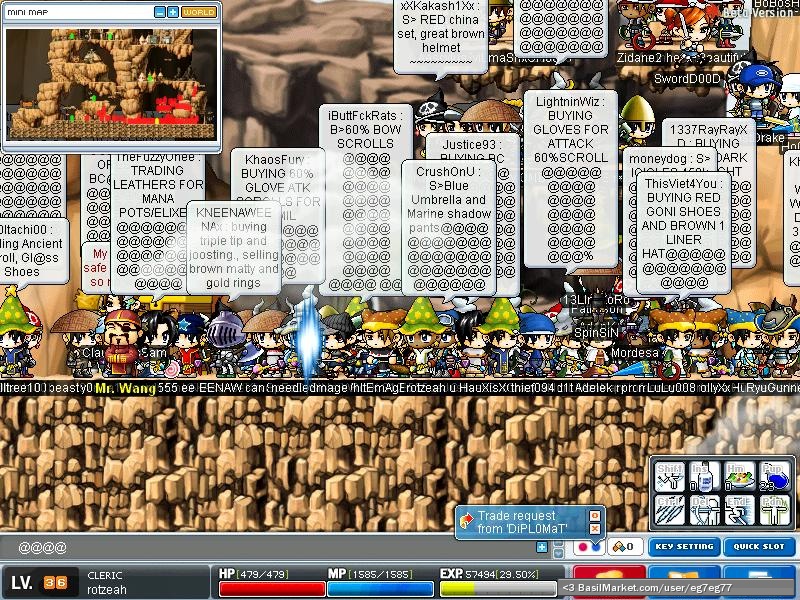So you want to make games…why?
Obviously if you’re reading this, you should be thinking about wanting to create a game. But have you truly asked yourself why you want to make a game? No doubt for the younger generations, we grew up playing video games so maybe that introduced a liking towards creating such games. What are some popular reasons?
For instance,
- Future career in game development
- Earning some money on the side
- Improving your résumé
- Showing off to friends and family
- Satisfying the creative mind
- Passion and aspiration
- Taking over the world
To let you guys in on a little secret, we’re the ones trying to take over the world. But yeah, those are some great motivations for getting into game development. “But Yves, what does this have to do with making your first game?”, you so naively ask. Well. Basically everything. I might have to get real here for a minute so be prepared. I’m going to assume that everyone reading this is a very sensible person trying to produce something of value and put it out into the world. So from that assumption, we can talk about some example scenarios listed above and how your first game development experience would differ accordingly.

Future career in game development
If you want to make game development your future career (either you’re a youth studying in college and prepared to get your first game development gig or you’re thinking of switching careers), then you have to really get into the serious mindset and live and breath video games. But really, are you sure you want to be a game developer? Do you know the career prospects? If you know what you’re getting yourself into then you’re going to have to bring your A-game to the products you create.
I used to work with a guy that used to work at EA (which I presume is your end goal making AAA titles) and he spent most of his time working overtime and stressing over reducing the file size of the final packaged game by some kilobytes. He was paid well and fed well, but his title was also game developer. I’m not trying to destroy anyone’s dreams, but corporate game development is not so much fun as you would think (maybe I am destroying people’s hopes and dreams). So in this case, if that’s part of the job description, you’d need to have qualifications for optimizations. What’s the best way to learn? That’s right. Implementing similar optimizations within your own personal game projects. Though I assure you as a survivor of this process, I do not recommend that you focus too much attention on this. Your best bet is to gain a lot of actual game development experience under your belt for now.

Your first game if you have no prior experience in development would be something very very simple and small. Don’t fall into the trap that many developers fall into (ahem…we’re guilty of that as well) and remake a Skyrim as your first game. That’s insane and you’ll waste a lot of your precious time. I know, I know, you’re thinking that if you make the next Skyrim, that would improve your chances of getting your dream game development job. Let’s just say if you make the next Skyrim, it’s better off that you don’t work for another game company and just start your own. It’s about working smarter, not harder. One thing that I can talk about from experience and knowing others like me who have also struggled similarly is that you should start from something small and work your way up from that. Having many small games under your belt looks much better to future employers than one large incomplete game that you can’t even demo yet because you’re busy creating your own game engine first.
Your first game can literally be a pong game or even a tetris remake or anything that is simple. Try to aim for finishing that one game within a week of work (maybe 40 hours of work in total?) and then double that estimation for polish and release. The point here is to know how you’re going to go about making a game in the first place, learning the game development process, and then managing your time after establishing a work routine. Never did programming before or you’re really bad at it? Look into game engines that don’t require that much coding, like GameMaker or Unity. If you’re a hardcore programming veteran then I would still recommend that you check out game engines since they already do a lot of the dirty work for you (don’t be an elitist and try to do everything yourself).
 Many options to choose from. Try them out.
Many options to choose from. Try them out.
Frankly, I used to think that my future career would be in game development since I loved playing games as a kid and always wanted to create a world of my own to share with others. This was my passion and also the career that I tried to pursue. You’re waiting for a BUT right now aren’t you? No BUTs, I’m still trying to make it my career through hard work and dedication. The first game I ever made in existence was a flash mouse maze game where you move your mouse through a path and try not to touch the maze walls. It was made just so I could tell myself that I made a game and I was one step closer to achieving my dreams. Of course it’s nothing significant, but at least I was making progress. And I believe that it was the right progress to make. I actually tried to tackle something too big for me the first time before I made the maze game and I failed miserably and even got so demotivated that I didn’t want to pursue game development anymore. Don’t make the same mistake I did and just make anything. ANYTHING! It could be any type of game you want. Just go through from start to finish and when you’re done, stare at your product in triumph and put a maniacal smirk on your face. Cause you did something that many others couldn’t do. I can assure you that the greatest barrier to success is yourself. If you just start and consistently do, then you’ll finish.
Earning some money on the side
So you already have a full-time job or you’re not entirely committed into the game development world and just want to make a few quick bucks on the side? Well then. Get out. Just kidding. 😛 But seriously though, if you want to make money then you might be in the wrong industry since games have really low return on investment.
 That's what I look like on my best days.
That's what I look like on my best days.
It’s quite well known in the industry that since indie game developers have little to no funding, have to do everything themselves, never see the light of day, that their ability to create something of great value is rare. But once in a blue moon, there are games that would get big for no apparent reason and it’s hardly something that can be anticipated. This is a risky business. Nobody really has all the answers when it comes to if a game will be raking in the big bucks or not. Most likely those that can afford to use money in exchange for better things to put into a game and show to their players will be the ones that end up with enormous revenues. But for us, it’s a whole different ball game. We need to rely a lot on market research, trend analysis, monetization strategies, etc. in order to better our chances at breaking even. I’m not saying that more funded developers don’t do that, I’m just saying that unfunded developers MUST do the business side of things, otherwise you’re probably looking at a penny in revenues and with a lifetime download count of 100 (if you’re lucky). Am I exaggerating? Probably. Maybe not.
So the big question is what kind of game would you make if you’re just in it for the money? Well sir/madame, a crap game. Lol. I kid again. But this maneuver is looked down upon in the game development community and I urge you not to only make games because of money. Think of it like this. People that play your game will notice that you’re a greedy developer that is in it just for the monetary gains. It will show in the product. Like you could load your game up with ads and micro-transactions and still try to sell it as a “game” and that it’s “fun” to play. All it does is guarantee you a bad reputation and that would tarnish any future attempts that you would have at earning any money with your games.
 We can all relate to this.
We can all relate to this.
The key to this is the perfect balance between monetization strategies and the game. There are many games out there that demonstrate this. Let’s take mobile games for example. Let’s also say that the primary revenue source for that game would be video ads and in-app purchases. Making the video ads shown to the player through a voluntary approach gives the player the sense of equivalent exchange, “I’ll watch an ad voluntarily if I can get a reward”. This keeps both the player happy and the developer happy. With in-app purchases, it works the same way, just don’t balance the game in such a way that you must pay to win. We can also bring up the more traditional way of earning money through games, an upfront payment model where the player would purchase the full game (usually though the games are still riddled with ads and micro-transactions…but what could you do…developers need to eat too).
I’m not trying to advocate any bad practices here so if you want to earn some money on the side from developing games then do it the right way and treat it like you care about the product and the end-users of that product. That makes life easier for everyone. So what should your first game be? Again something that is simple to finish, but since you want to make the greens with this game, you’ll need to invest extra time into implementing ways to monetize, or putting in more work into game design so that your monetization model could fit in smoothly somehow. You would also need to spend time marketing your game and looking for ways to optimize searches for your game. The important lessons you learn will be how to sell the game as a product rather than caring too much about the game as a passion. This could work to your advantage and disadvantage though. On one hand, your game could be void of developer “perfectionist” habits, that is, when developers care so much about the game that every little thing about it must be perfect, which could dramatically increase development time many folds (from personal experience). On the other hand, you lose the feel of the game and players will know. It’s like saying how you could develop games without ever playing games. If the developer is creating a game without putting his/her heart and soul into it then they better hire someone that can (maybe I’m expecting too much).
In my personal opinion, games are much more than objects to exchange for money. They’re a form of art and the developers are the artists. Money is a compliment to the intrinsic rewards obtained through presenting your art to the world stage. It’s not paramount, but it’s nice to have.
Improving your résumé
Well, well, well. Somebody wants to add a section to their résumé about a game that they will create. Smart thinking since you probably thought that plain old software is not fun at all and you can kind of kill two birds with one stone if you’re interested in games to just build one and substitute it as a personal project for that software job that you want. The problem here is that games and software are different products even though they share a common development process. Within customer-facing software or applications, one would employ the software development life cycle and there is much more focus on utility and features rather than in games where design, graphics, progression, and optimizations for user experience are more heavily involved. Since games are more similar to works of art like movies and the main functionality of a game is to deliver entertainment to its users, more concentration is put on to the overall experience from start to finish. The whole intention of software is to help the user do something with ease using the help of a computer, for instance, software that helps your small business with accounting. Pretty dull utility from a game developer’s perspective, but there are lots of accounting software companies out there that hire based on that criteria.
Does making a game actually help you with your chances of landing your software job or any related job for that matter? Yes and no. Yes it would help you if you listed a game on your résumé rather than nothing or how you excel at procrastination. Your potential employers would know that you have been through the development cycle of a product and that you know how to manage your time, actually finish something by working consistently, have the knowledge to create a game, etc. Though this would probably only help in the general sense of things. If you were applying for a job at McDonald’s you could probably use that and have some bonus points on the general process of product development and how you can use those skills on the job, but if you applied for a software company that makes accounting software then you would still get the general bonus points along with fulfilling the programming experience requirements. This would be more technical so if you didn’t make your game with any programming at all then that wouldn’t work too well in your favour when your employer questions you about it during the interview. So no it wouldn’t help your chances too much if you were basically a game designer pretending to be a programmer and applying for that job.

Depending on what type of job you are trying to apply to with that résumé, you would start off with games that are geared more towards those industries. So from the example before with the accounting software company position, I would recommend that you actually develop software and use that on your résumé since it would be more relevant experience, but if you truly want to create a game then your focus should be somewhere around an accounting theme and you have to make sure that the programming experience you get from developing the game can be transferred over to that job. It would be nice to have it be based around accounting, but if you use the same programming solutions in a game that you would use in an accounting software then that should be good enough to count as a transferable skill. For example, if you need to implement a database for the accounting software to store every transaction entry, then make a game (maybe an RPG) where you also need to implement a database to store game transactions or events. And then on your résumé you can list this fact as you would when you list software that you developed and then you’ll have better chances at getting that interview. The key here is to put relevant experiences for an employer so that they will consider you for a position.
Showing off to friends and family
You’re a big showoff. You like it when your friends think you’re cool and your family can be relieved that you’re doing something with your life. Though you have to realize that all of this is just a phase and when you take in all that praise and glory from finishing a game just to seem cool, you’ll be left empty inside. This isn’t a very strong reason to get into game development at all since it’s synonymous to working at a job that you hate just because you’ll earn a lot of money and it’s a well-known company. Some people actually do become motivated just on those reasons alone, but to feel self-fulfilled is to strive for something greater than what is on the surface. Do you yourself like to make games? Or are you making games so that other people will like you? You won’t last long if it’s not an inherent feeling and compulsion to develop great games. It’s that drive that keeps us indie game developers going. It’s the reason we wake up in the morning. You have to find your own reason and don’t aim for your peers’ approval all the time, you’ll never satisfy everyone.
 Amen.
Amen.
If your friends and family are supportive of your devotion to game development then they would be happy to see that you created anything at all. So a good start would be to create a game that is casual and something that everyone can enjoy across all ages. Best would be casual single-action controlled leader board games so that you can get your peers addicted to playing and you can feel proud that you made something that others are having fun with. Or maybe a game with stunning visuals (if you’re an artist or willing to invest into art assets then by all means) that make players go WOW! They invest their free time onto your own creation and they gain entertainment and satisfaction from playing it. That just seems amazing to me and very humbling. Maybe you’ll learn to appreciate the greater feelings associated with game development and will develop games because it has become your passion. I believe you’ll create great and awesome games in the future if you were able to adopt these feelings of motivation.
Satisfying the creative mind
Have you ever been the type to dream of making games with complex mechanics or open-world exploration that only challenges the perseverance of gamers? If so, you have the right mindset for an indie game developer.
Indie games are known to be niche and something out of the ordinary that you would see with the big game titles these days. You might’ve heard of a few already like Undertale, The Stanley Parable, and No Man’s Sky.

And these games really stretch the norms of what games are known to be and people love it. Don’t ever be scared to make something that is creative. Don’t be scared that nobody will play your game because of how niche you think it is. Make the game and see how it does. If it’s to satisfy your creative mind then you should feel satisfaction from its completion. Are there any hints to creating a creative game? Nope. Not from me. That’s the whole point of the creative process. Whatever you can dream of, just make it a reality. I believe you can do it. 😉
Passion and aspiration
To have a dream and direction of where you want to go or where you want to be is rare. But if you do share these sentiments with the rest of us, I’d like to welcome you into our cuddly and supportive family. You must have stories to tell that led you to have such aspirations to make a game and I’d like to hear that. I think this is the best form of motivation. One that is intrinsic in nature. It also means that you’ll be a developer that is very caring of your game and the players that play it. Heck, maybe if you are someone with so much passion for making games, then when you’re reading this, you probably already have a few released games to be proud of.
There is nothing that can stop you from making the game that you’ve been dreaming of making ever since you were in diapers. Well other than funding, nothing else really. But that is a very real problem and something you can’t ignore. I believe a lot of game developers come to that realization when they are very passionate about making games. So here’s a generic storyline of the conventional game developer. When they were a child, they played a video game that they enjoyed a lot and thought, “hey, I want to control every aspect of a virtual world” or “I wanna make something like this! I wanna! I wanna!”, you get the point. And so from then on, they aspired and yearned to create the next [Insert game name here].
 Haha. This is my version of the story. Good times, good times, MapleStory.
Haha. This is my version of the story. Good times, good times, MapleStory.
The great problem with this line of thinking is that this is where most developers end up in a rut of creating a humongous game by themselves or with a newbie team of friends and expect to actually pull something off. I can assure you that 99.99% of the time, developers would give up near the starting line due to them lacking the experience to estimate the scope of the project that they so carelessly partook in. You can have dreams, but you also need to be realistic about it. You can have passions, but reduce the scope to what you can realistic handle. This is something that we struggled with at the start so we can talk from experience.
If you used to play an MMORPG game and you want to recreate something similar, start with small steps. Create a single-player RPG game that has a few basic functionalities like inventory, equipment, skills, levels, monsters, characters and then strip those functionalities down even further. So if the game that you envisioned had thousands of equipment for characters to equip, maybe strip that down to 5 or 10 or 20. Same with skills, perhaps only 5 main skills. Same with monsters, you can recycle monsters if you want to by using the same art assets but different colours. There are lots of ways you can strip things down so that completion would be within your sights. Finish the game, polish it, test it, release it. Then you can say that you’re one step closer to achieving your master goals. You can then either create a sequel of the game with new features and a more intricate system or make an entirely new game that improves on what you learned from the first. These are smarter and more effective ways of an action plan towards fulfilling your monolithic dreams than chasing a dream with no preparation and awareness of the consequences.
Taking over the world
(•_•)
( •_•)>⌐■-■
(⌐■_■)